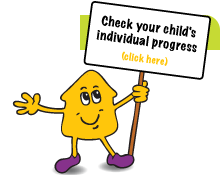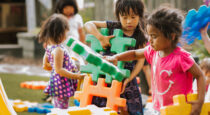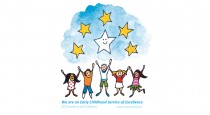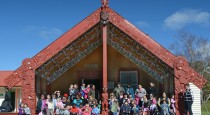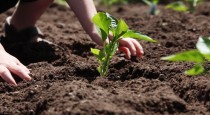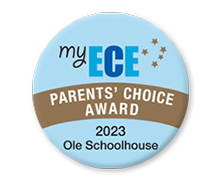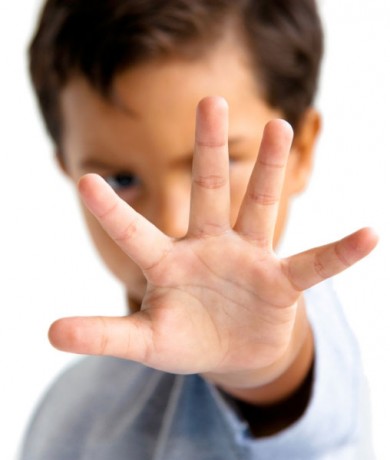Child Protection
Child Protection
What can parents/carers do about childhood sexual abuse?
Many parents feel at a loss to know how to protect their children from possible sexual abuse. However, with as many as 1 in 4 girls and 1 in 8 boys falling prey to predators in New Zealand, it is important to know that we are not helpless. Protection requires you to be proactive: you can’t do nothing and expect that the issue will go away.
Your best defence is to be alert and always be observant. We suggest that you think carefully about any one adult/one child situations that your children might find themselves in. If possible:
- Choose group situations
- Ensure that several adults supervisors are present
- Ask organisations for their child protection policy
- Monitor children’s internet use
- Find a way to tell people who care for your child that both you and the child are educated about sexual abuse
Remember, your silence helps perpetrators achieve their goal.
Reduce opportunity
Most sexual abuse of children happens in private when one child and one adult or older child are alone. Therefore, if you can avoid or reduce one child/one adult situations, you will greatly lower the risk of sexual abuse. Abusers often plan to become friendly with their potential victims and families by getting involved with family activities, slowly gaining trust and being supportive to parents in looking after children. Their aim is to get time alone with children. Your best defense is to be alert and observant. Talk with your child about time they spend with others. Notice their mood and whether they can tell you with confidence how the time was.
Break the silence
Good communication between the parent and child is the most important step in protecting a child from sexual abuse. You might feel uncomfortable because you may not know how to begin, or because you feel you do not have the answers to all the questions your child may ask. If you present the information as being a lesson in personal safety, as when you told your child not to touch a hot stove, you will realise that the subject can be handled in a matter-of-fact way.
Talking openly about child sexual abuse warns abusers that you have your eye on the ball. Abusers take advantage of children’s innocence and lack of knowledge about their bodies to get away with sexual abuse. This is why adults’ discomfort about talking to children about their bodies, and particularly their genitalia, contributes to children’s vulnerability.
Talk regularly with children about who they think their network of safe adults is. If sexual abuse occurs, children who want to disclose will often tell a trusted adult other than a parent.
How to start talking to your child
You can start by teaching your child that his or her body is special and should be protected. Begin as soon as you think your child is old enough to understand, certainly by age three. Start simple and keep it that way. Using the correct names for body parts will help the child develop a healthy respect for his or her body. If you have trouble doing this, use other names. Just start talking!
Do not try to cover everything in one discussion. Talking to your child about sexual abuse and personal safety should be an on-going process. And, do not make a big thing of these talks. Be casual and informal, and choose a time when the child feels safe and relaxed. When you talk is not as important as what is said. Here are the main ideas you should convey:
- You are special and important
- Your body is your own
- There are parts of your body that are private. You have the right to say “NO” to anyone who wants to touch your vagina, penis, breasts or buttocks. You have my permission to say “NO” even if that person is an adult … even if it’s a grown-up you know
- If someone bothers you, I want you to tell me. I promise that I will believe you
- If someone touches you in a way that does not seem right, it is not your fault. Always tell a trusted adult
Some rules to follow
Children need to know that the safety rules about touching apply all the time, not just with strangers … not just with men … not just with baby sitters. In many cases children are sexually abused by people they know and trust – relatives (even parents or siblings), friends of the family, and authority figures (teachers, youth group leaders, clergy, etc.). Sexual abuse usually occurs in places where children feel comfortable or safe – at home or in the home of a family friend. Estimates suggest that 1 in 4 girls and 1 in 8 boys will be victimised, many before age 16.
Also, abusers seldom need to use physical force to get a child to participate in sexual activities. Rather, they take advantage of the child’s trust or friendship and may use threats, bribes or treat the child as special to keep the activity a secret. For example, a child may be told that his or her parents “will not believe a kid.” Other commonly used threats are: “If you tell I will hurt you”; “I will hurt your mother”; “I will have to go to jail”; or “The family will break up.” Unfortunately, abusers can use threats successfully because children are taught to believe and obey adults.
Children learn best when given simple rules to follow, so establish a set of family rules about personal safety and repeat them often.
- Include touching rules as you talk about other safety rules
- Teach children they must not touch other’s privates
- Teach children that adults may not always be right
- Remember that there are differences between what younger children and older children can understand
- Model caring for your own body, because children will always mirror what you do yourself
The “What if …” Game
One way to help children protect themselves is to practice responses to potentially dangerous situations. That way, if necessary, a child can react properly and quickly. The “What if …” or “What would you do?” game can make practicing easy and fun. Here are a couple of “What ifs” to start you off:
What if … something was bothering you and you did not know what to do about it? Who might be able to help you?
What if … the baby sitter wanted to touch you under your pyjamas?
Click HERE for more “What ifs” with answers: these are in under resources on our website. You can make up “What Ifs” from your child’s own everyday experiences, using familiar names and places. Discuss only one or two per talk. But, be sure to practice regularly so that your child learns to recognise when to say “NO!” and when help is needed.
You cannot prepare children for every single type of situation that can occur. Parents just need to be observant and always sensitive to changes in their children’s behaviour and mood. Please visit the Sexual Abuse Centre website for further information or for advice on how to respond to a child’s disclosure. If you need personal advice you can call or email The Sexual Abuse Centre or the CYF helpline.
Sexual Abuse Centre (Rotorua) Inc:
www.sexualabuse.org.nz
(07) 348 1555 or help@sexualabuse.org.nz
CYF Helpline: 0508 326 459
